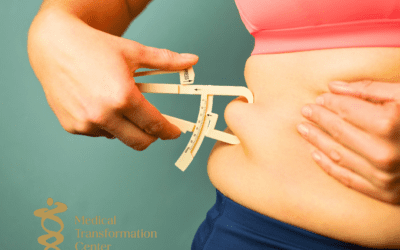It’s no secret that things change as we get older. We notice ourselves slowing down, and we start to see a drop in general vitality, strength, sexual interest, and more. These changes happen as the natural production of hormones in our bodies begins to drop with age. At the Medical Transformation Center in Louisville, KY, we can offer bioidentical hormone therapy that will get you back to living and feeling like your old self again. Found out hormone replacement therapy cost to be ready for this kind of treatment.
How Quickly Does Bioidentical Hormone Therapy Work?
We all want to see a change as quickly as possible! The good news is that, though each of us is different, it doesn’t take long to get relief through bioidentical hormone replacement therapy, or BHRT.
In general, you can expect that mood-related symptoms, like anxiety, impatience, or insomnia, will begin to resolve within the first week or so of BHRT treatment. For women, hot flashes and vaginal dryness begin to go away around week two.
Both men and women notice more energy and sharper thinking at around three weeks. And for most people, 80% of their symptoms are entirely gone six to eight weeks after treatment. The best news of all is that once you obtain relief, you’ll keep it for as long as you need therapy.
Aging and Hormonal Changes
BHRT is simply a way of treating the natural drop in hormone production that we all experience. For most people, these drops occur gradually and with age. For some, however, they can happen suddenly, and even at a relatively young age.
Changes for Women
Estrogen is responsible for sexual and reproductive development, but it does a lot more. Just one of its many other functions is to preserve bone density, which is why post-menopausal women are at greater risk for osteoporosis and bone fractures. For women, estrogen naturally begins to drop at some point during the late 30s or early 40s, though most women don’t notice a change until they are much older and get closer to menopause.
There are, however, other things that can cause an unexpected estrogen decline. Excessive exercise or being severely underweight can throw the body’s hormone production into chaos. Low estrogen can also be a side effect of chemotherapy, or it could be caused by a thyroid disorder or a pituitary gland that doesn’t function optimally. Genetics also has a lot to do with our hormone levels and how quickly they decline. Women who have a family history of hormonal problems are at greater risk.
For Men
Testosterone naturally drops in men over time, starting about the time a man turns 30. The drop is small–only about 2% every year–but after ten years this means a man’s hormone production is 20% lower than what he enjoyed in his 20s. As with estrogen in women, testosterone is responsible for much more than just sexual and reproductive development, so the loss of testosterone can greatly affect a man’s quality of life.
In addition to a natural drop that comes with age, some men develop Low T for other reasons. For some men, the issue is hypogonadism, which can be an inherited condition or caused by cancer treatment, physical injury to the testicles, or a battle with the disease known as mumps. Secondary hypogonadism can be the result of HIV, an inflammatory disease, or a disorder of the pituitary gland. Other possible causes include:
- Alcohol abuse
- Prostate cancer treatments
- Steroid use
- Metabolic disorders, including Type 2 Diabetes
- Obesity
- Obstructive Sleep Apnea
- Trauma to the head
What Is Bioidentical Hormone Therapy?
Hormone replacement therapy has been around for a while, and it’s simply about adding back some of the hormones the body isn’t able to produce so well on its own. The goal is to get your body back to optimal wellness and function.
Traditional Hormone Replacement
Many people are concerned about hormone replacement therapy because they worry about possible side effects. The jury is still out on all these effects, but many people are rightly concerned about the possible increased risk of cancer, among other issues, these hormones present.
At least one reason for this is that synthetic hormones are not bioidentical. They are similar to our natural hormones, but each type is mass-produced in a lab by a pharmaceutical company that needs to patent its work. To make it possible to “copyright” a human hormone (which occurs naturally and thus wouldn’t normally be something you can patent), each of these manufacturers adds small, unique proteins to make their creation unique. These proteins are thought to be what cause unwanted side effects.
How Bioidentical Hormones Are Different
Bioidentical hormone therapy uses hormones that aren’t just similar to your body’s natural hormones–they are identical at the chemical level. BHRT is compounded specifically for your needs, with just the right levels of each needed hormone to get you the results you need.
Bioidentical hormone therapy can be administered in different ways, but perhaps the best method is through pellet insertion. Bioidentical hormone pellets are inserted into the body once every few months, where they deliver a consistent dose of hormones, which allows you to feel better steadily and without the swings that often come from other methods, like injections or creams.
Am I a Good Candidate for BHRT?
This is the ideal therapy for anyone suffering the negative effects of a change in their hormone levels. Your first step is to talk with us. Together, we’ll go through your symptoms, and we will run tests as needed to discover what’s going on in your body.
There are several signs that indicate you might benefit from BHRT.
Signs for Men to Consider
You’re Seeing a Change in Your Sex Life
Since testosterone plays such a crucial role in male sexual functions, it’s not uncommon for men with low testosterone to struggle with ED or to see their general sex drive go down. The first sign of ED is often when spontaneous morning erections no longer show up. If you’re suffering from ED–especially if the onset has been gradual and a doctor has cleared you of other possible causes–then you should have your testosterone levels checked.
You should also consider getting help if you notice that your libido has dropped suddenly. While it’s natural for men to feel less interested in sex as they age, your sex drive should not go away altogether or drop off suddenly.
You Have Hair Loss
Testosterone has a lot to do with hair growth, and while some hair loss is genetic and has nothing to do with testosterone, some is caused by Low T. If you notice an unusual pattern to your hair loss, if no one else in your family has it, or if you’re noticing a loss of body and facial hair as well as hair on your head, come see us.
You Have Reduced Muscle Mass
Testosterone plays a crucial role in the growth and maintenance of muscles, so when levels drop, men often notice that they aren’t able to keep muscle as they used to. If you’re keeping up with your gym schedule but still struggling to keep your muscle mass, the culprit could be testosterone.
You Are Putting on Weight Unexpectedly
Testosterone is the primary hormone in men, but it’s not the only one. Men’s bodies also produce estrogen. If testosterone levels drop too far, you could suffer an imbalance that leads to gynecomastia, or the growth of male breast tissue. Too much estrogen can also be at play in general weight gain, especially if nothing has changed about your lifestyle otherwise.
You Feel Tired All the Time
One key symptom of low testosterone levels is constant exhaustion, even when you’re getting enough sleep. You may also notice that you don’t have the same interest in activities that you used to love or that tasks take longer to complete than they should.
You’re Having Mood Swings
Mood swings for women during menopause are a well-known side-effect of lower estrogen levels, but what many people don’t realize is that men can suffer the same issues when their testosterone levels drop. You may find yourself irritable, depressed, or unable to focus, since testosterone is a vital part of some cognitive functions.
You Can’t Remember Things
Poor memory is a classic sign of aging, but if you’re experiencing memory problems long before you should, the culprit could be low testosterone levels.
Signs for Women to Consider
Your Periods Are Irregular
Since estrogen is a key component of healthy reproductive development in women, any change in levels will manifest during the menstrual cycle. About 25% of women are thought to experience irregular periods, and health experts suggest that you may be suffering from a drop in estrogen levels if you have periods that are lighter or heavier, longer or shorter, or more painful than usual.
You Have UTIs More Often
When estrogen levels drop, the lining of a woman’s urethra becomes thinner. This makes it easier for bacteria to get into the urinary tract. If you find that you’re struggling with more frequent UTIs, the problem could be estrogen.
You Aren’t Enjoying Sex
For a woman suffering from lower estrogen levels, sex can go from pleasure to pain. Low estrogen causes the vagina to stop producing as much natural lubrication, which can make the act itself painful. In addition, you may experience a general drop in libido even if you don’t find sex itself painful.
Your Metabolism Has Slowed
As with men and testosterone, estrogen in women is important to keeping a healthy metabolism. When estrogen levels drop, women see a significant change in their energy levels. If this is happening to you, you may find that you suddenly feel no motivation to do things or that you struggle to accomplish routine tasks. You may also start to gain weight, even if your diet does not change. If you notice these changes, talk to us about whether BHRT can help.
You Experience Hot Flashes and Night Sweats
This is a classic symptom of menopause, but there’s no reason you should have to endure them, and especially if you’re suffering them earlier than normal. BHRT can help. Hot flashes are characterized by red, flushed skin and a sudden, overwhelming feeling of being overheated.
You’re Having Mood Swings
Estrogen controls the mood by staying in balance with other hormones and helping in the production of natural chemicals that boost mood, like serotonin. When levels drop, it becomes harder to stay positive and calm.
See How Therapy Can Help
If you’re suffering from any of the above symptoms, and especially if you haven’t gotten a good answer about your problems or are only getting treatment for the individual symptoms, visit the Medical Transformation Center in Louisville, KY today to know the hormone replacement therapy cost so that we can help. We want to get at the root of the problem and get you back to feeling like yourself again.





